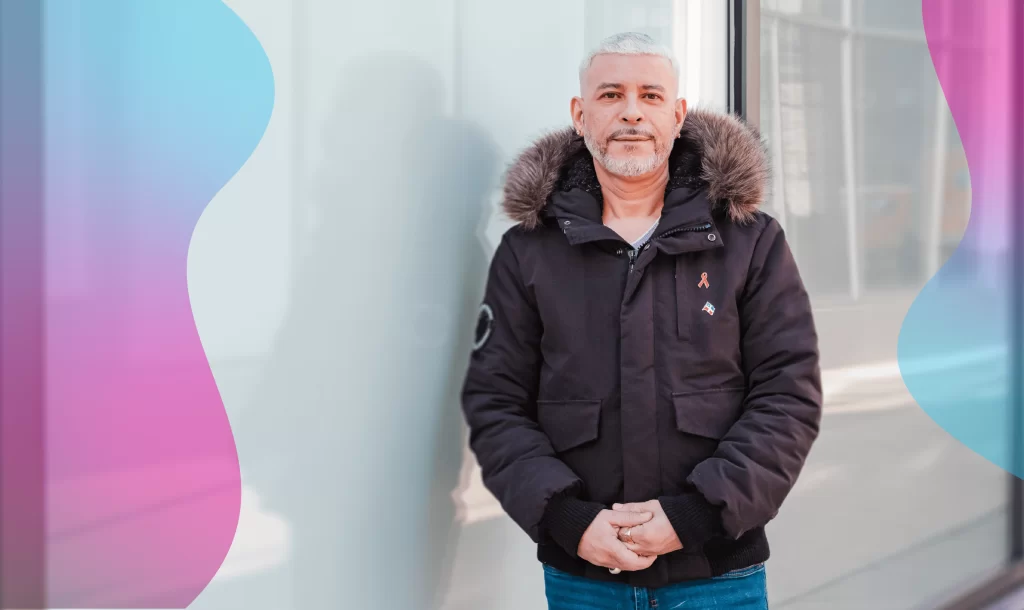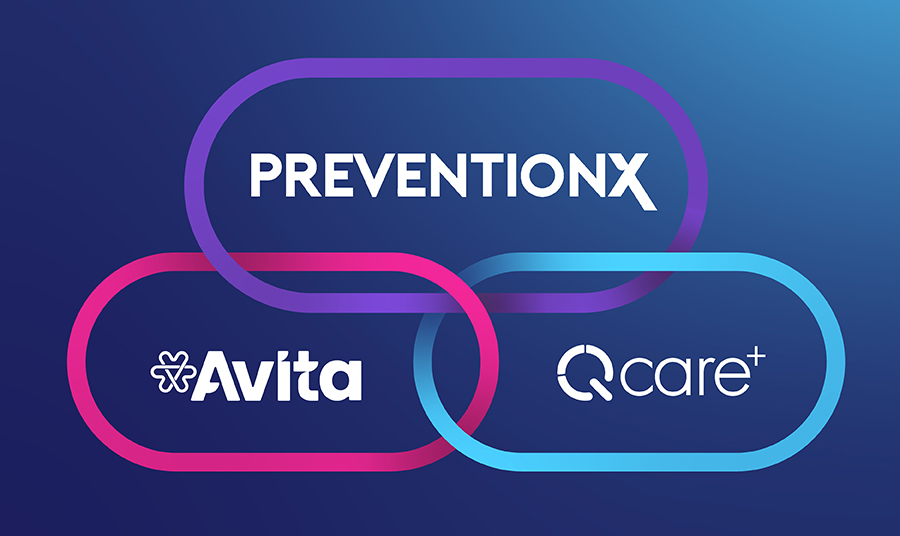In the early 1990s, AIDS became the leading cause of death for men aged 25 to 44. At the time, the CDC reported that one million Americans were living with HIV, a statistic WHO expanded to 10 million people worldwide.
For Ismael Ruiz, who was then in his twenties but had been living on the streets of New York City since the age of 17, the risk of acquiring HIV was yet another obstacle in his overall fight to survive.
“It was something I knew was out there, but I didn’t want to face it,” says Ruiz, who was then a sex worker. “I knew that if it was going to happen it was going to happen, and that was the way I had to live.”
When his partner died of complications from AIDS, Ruiz was devastated. When he started feeling ill himself, he went to get tested. He says he forecasted the results before he even got them back. “I knew I had gotten it,” Ruiz says. “It was shocking, but not shocking.”
Mom, I'm sick.
Ruiz’s diagnosis led to a whole new set of challenges, the biggest of which wasn’t medical—he was terrified of how his family would respond. “Being treated differently because of what you’ve seen in the past, by people who are supposed to love you, that was my biggest fear,” says Ruiz, who tried to stay in contact with his family even though he still lived on the streets.
One day, sitting in his mother’s kitchen, Ruiz simply told her, “Mom, I’m sick.” When she asked if he had a cold or if she could take him to the doctor, he explained, “It’s not that type of sick. I don’t know if I’m going to live or die.
One day, sitting in his mother's kitchen, Ruiz simply told her, "Mom, I'm sick." When she asked if he had a cold or if she could take him to the doctor, he explained, "It's not that type of sick. I don't know if I'm going to live or die.
“I told her I had AIDS,” he says, “and she just looked at me like a mother looks at her child, and said, ‘We’ll get through this.’” It was an emotional conversation, given that it was his mother’s refusal to accept his lifestyle that led to Ruiz’s life on the streets in the first place.
Despite hearing those reassuring words from her mouth, Ruiz waited to see how things would play out. “The proof is in the pudding,” he says. “I thought, are you going to change the way you treat me? Will I have a special plate, a special spoon?”
To his relief, Ruiz’s mother ended up not treating him any differently due to his diagnosis. Instead, she educated herself. “She actually told me that she had done some research,” he says. “For her to come out of her comfort zone, to try to explore a different way of understanding her son than what she had always been told, that meant more to me than getting diagnosed. Because I knew then that she accepted Ismael, her son, as a gay, brown-skinned, Hispanic man. And she’s always been there since.”
Taking a stand
But coming to terms with his diagnosis, treatment plan, and who he was as a person was still a work in progress. “I went through my ups and downs,” Ruiz says. For example, the early 2000s included “years of struggles, of hiding myself, and of finding out what medication works best for me.”
That’s when Ruiz decided to take a stand.
“I got tired of being alone,” he says. “I felt judged. I felt like I wasn’t part of society anymore. So, I started mental health therapy.”
Ruiz’s first mental health therapist was also a gay man, someone who could “comprehend my pain and suffering, and walk in my shoes.” The therapist and Ruiz discussed the fact that while Ruiz was taking his medications as prescribed and eating right, he was wasting away physically. “I was a walking skeleton,” says Ruiz.
Avita has shown me that I'm not just part of the system. I'm also helping improve the system to better care for patients.
- Ismael Ruiz
The therapist introduced Ruiz to the Alliance for Positive Change (then called the AIDS Service Center), an organization that helps New Yorkers living with HIV and other chronic health conditions get the medical care, peer support, and housing assistance they need to achieve health, happiness, and stability. The agency’s Peer Program helped Ruiz learn more about HIV and how to help the community based on his own experience with the system.
“The program built my self-esteem a lot,” Ruiz says. “It empowered me to not be ashamed of what I’d done in the past, but to be proud because those experiences helped me get where I am today. Without them, I wouldn’t be as strong as I am and able to bring that to my community to help it move forward.”
After graduating from the program, Ruiz started taking computer classes at Alliance and used his newfound skills to gather information about treatment protocols on the internet. He found out that the HIV medication he was taking twice daily could cause muscle wasting at certain doses. So, he tried taking it once a day and began seeing positive results. “Later my doctor looked at my blood work and asked me, ‘Did you change anything?’” Ruiz remembers. “I told him what I had learned through my research, and he said, ‘I was not aware of that.’”
It takes a village
From there a life dedicated to advocacy was born.
As one of Alliance’s Community Member Advocates, Ruiz quickly dedicated himself to empowering other patients with information, an impact he likens to the domino effect. “The knowledge that I’m bringing can help support the rest of the community and lead to other patients empowering themselves,” he says. “It takes a village.”
After 15 years with Alliance, Ruiz says he feels grateful for the opportunity the organization has given to him. “It’s been a big part of my life and growth,” he says. “They knew that I was quiet and self-contained, but they also acknowledged what I could bring to the table—that I wanted to absorb, learn, and give back in the same way I was getting.”
If I know something, then you're going to know something. I'm not only a man. I'm gay, and I'm Puerto Rican, and I'm HIV positive. If I can do it, I hope it inspires everyone else, too.
- Ismael Ruiz
In his current role as a Peer Worker, Ruiz partners with both Alliance and its pharmacy partner, Avita, to encourage other patients to take better care of their health. “Avita has shown me that I’m not just part of the system,” says Ruiz, who has been filling his prescriptions through the pharmacy for the last three years. “I’m also helping improve the system to better care for patients.”
What’s more, there’s a marked difference between a culturally competent pharmacy like Avita and the retail pharmacy on the corner, Ruiz explains. “Avita offers a sense of overall empathy that all patients want,” he says. “When I meet with the Avita team, they’re very true as to who they are and what they represent. It shows me that beyond Alliance, there’s a pharmacy out there that wants to work with the community.”
Get ready to step up
What tips does Ruiz have for others living with HIV who want to advocate for themselves? “First of all, ask yourself, are you ready?” Ruiz says. “Are you honestly ready to take that step and say, ‘I need to speak up. I’m done. I’m tired of waiting for a call from my doctor; I need an answer today.’
“That’s what [advocacy] means to me,” he adds. “Being part. Being of. Being worthy. Doing, and not just taking. That’s what I carry in my wallet every day. And it doesn’t stop at Alliance; it’s also going out into my community.
The knowledge that I'm bringing can help support the rest of the community and lead to other patients empowering themselves. It takes a village.
- Ismael Ruiz
Advocates also need to understand how to not take “no” for an answer, Ruiz says. “You’ve got to know when to speak up and how to go about it,” he says. “You have to learn how to keep yourself from looking like an idiot or ‘less than.’ It’s all about being eye-to-eye [with whomever you’re communicating]. You’re a human being just like they are, and you should expect to be treated like one.”
Finally, he advises, there’s a right way of advocating and a wrong way. Being persistent—but also respectful—is key to getting positive, powerful results.
Behind the scenes (but still on the front lines)
While testing positive for HIV is no longer an automatic death sentence, Ruiz’s mission to help others advocate for their health has never been more important, and it is still a cause very near to his heart.
“I’ve always been an advocate behind the scenes,” explains Ruiz, now 52. “But just knowing that my story can help someone else puts me in the front lines, because there’s a face to the story. That’s what I’ve always wanted to do—put my story out there to help everyone else.”
Because even in a society that’s come a long way in addressing misconceptions about HIV, “there is still someone out there who is getting judged, there’s still someone out there who doesn’t have anyone to turn to,” he says—someone Ruiz can help.
“If I know something, then you’re going to know something,” he concludes. “I’m not only a man. I’m gay, and I’m Puerto Rican, and I’m HIV positive. If I can do it, I hope it inspires everyone else, too.”
Ismael Ruiz dedicates this telling of his story to his mother, for always supporting him; the Alliance for Positive Change, for seeing his true qualities; and to Samuel Rodriguez, for pushing Ruiz’s potential and introducing him to Avita Pharmacy.




